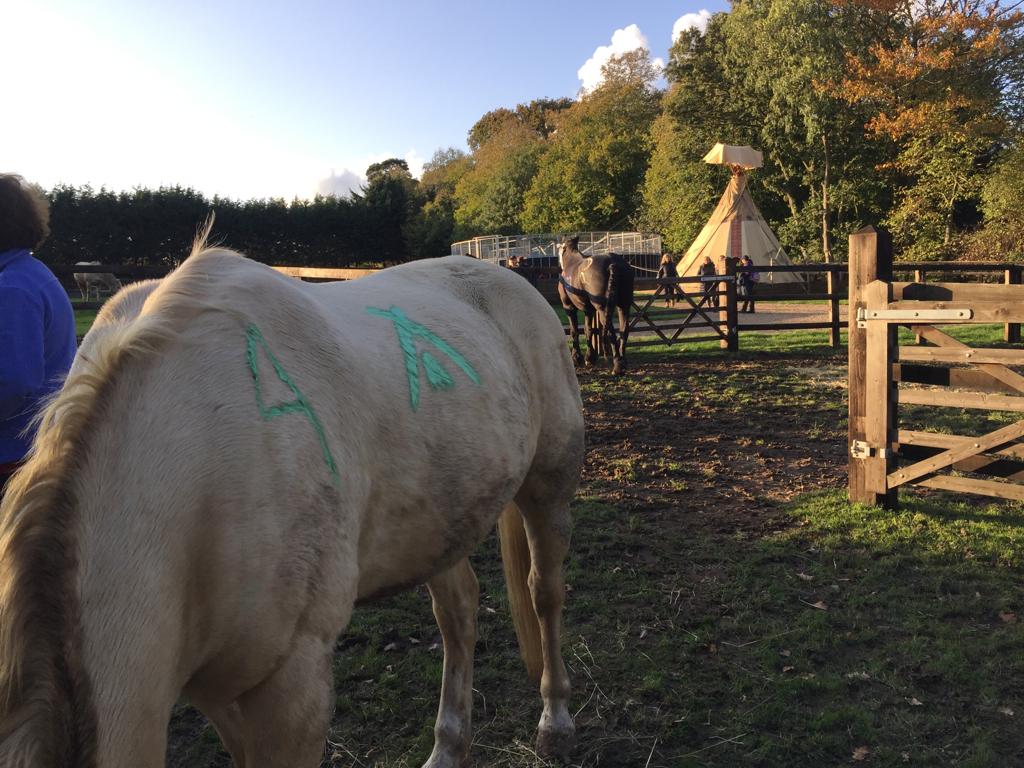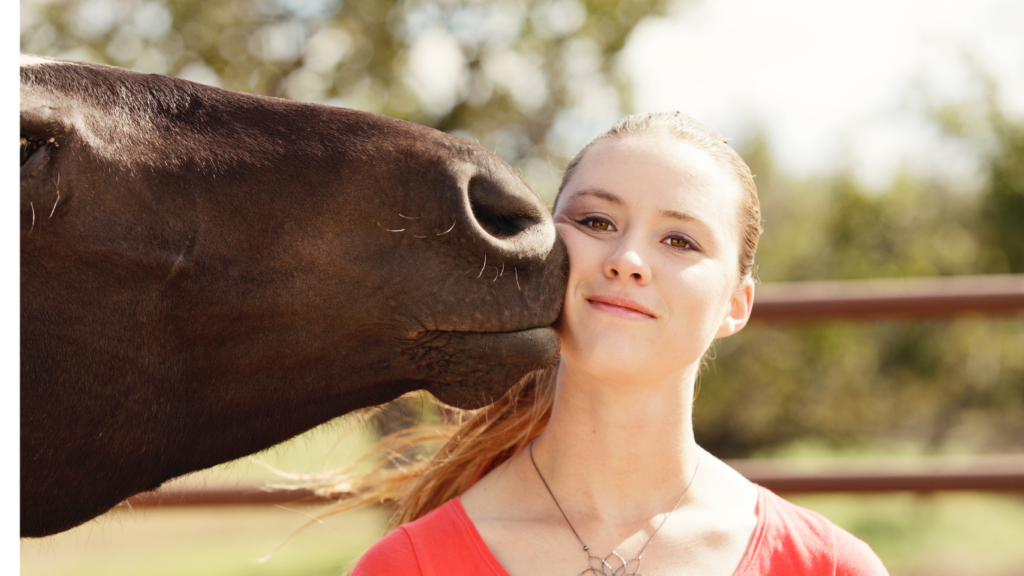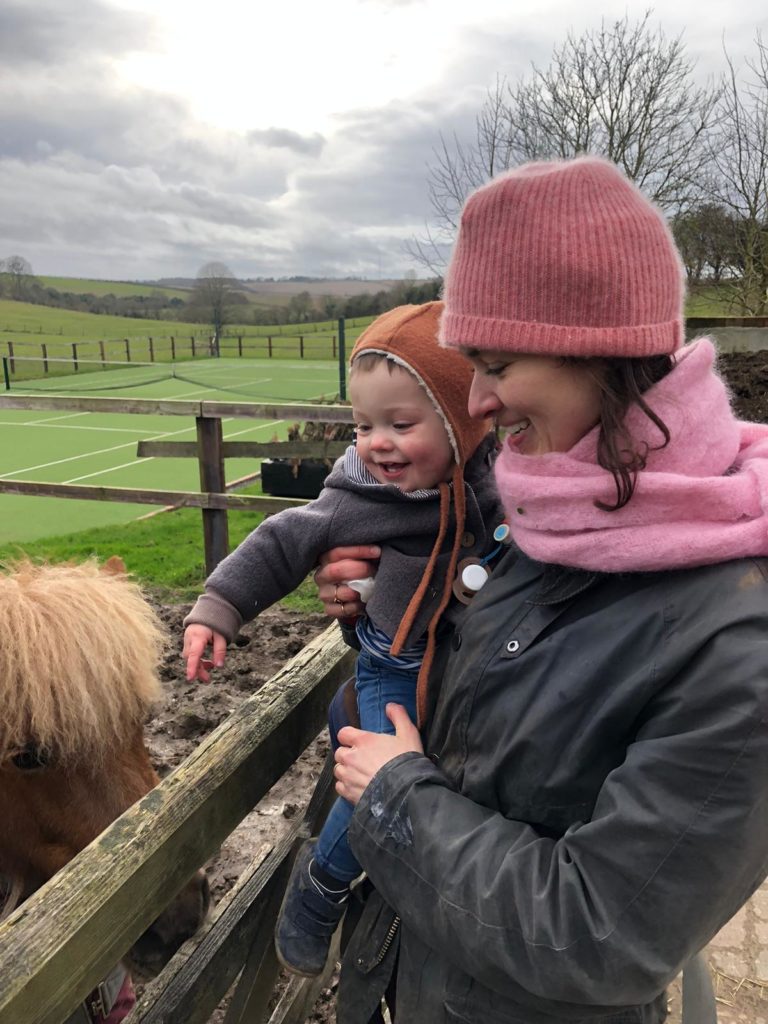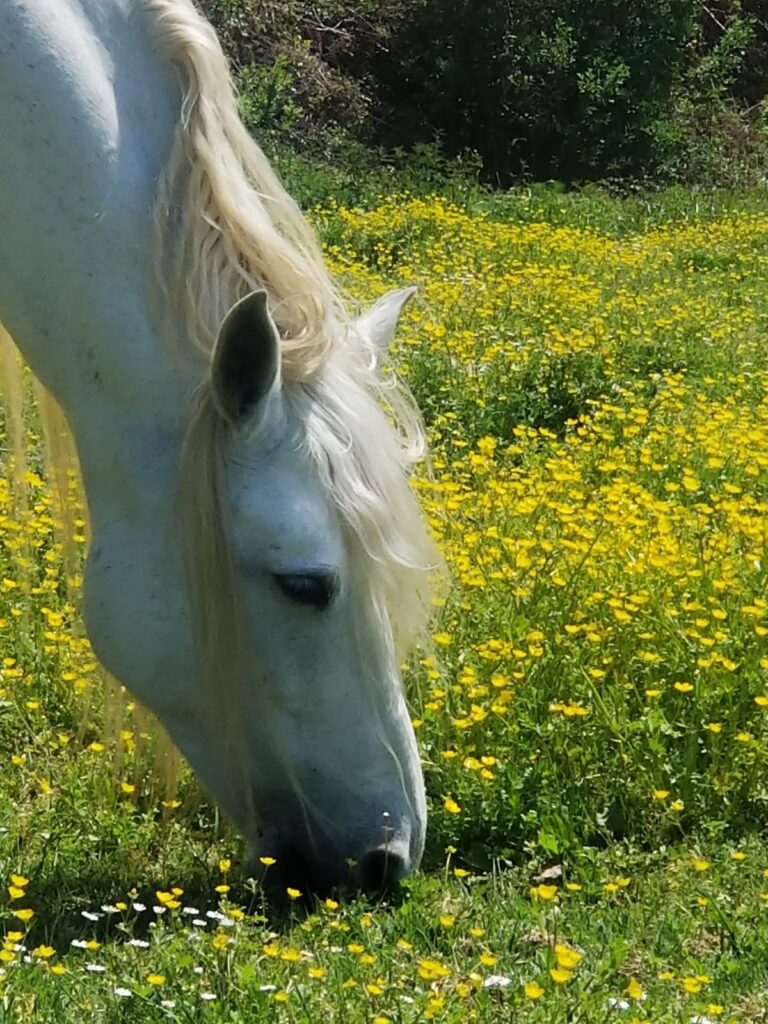Please note my practice is curretly full but please email me if you would like be added to my waiting list.

WHAT IS EQUINE FACILITATED SOMATIC THERAPY?
Equine Therapy is a type of therapy that combines somatic (body-centered) awareness with equine (horse-based) activities. It is a type of experiential therapy that uses the power of the relationship between horses and humans, to help people heal and unburden themselves from trauma, as well as learn about who they are, and develop their strengths and qualities accordingly.
The therapy involves the client engaging in gentle explorations in relationship to the horse, the natural world and their own felt experience, which help them to:
- Become more aware of their body and emotions and relational styles.
- Explore and benefit from co and self regulation
- Benefit from the healing attunement between themselves and the horse(s) and develop a safe experience of right to right brain connection.
- Explore a wider experience of ‘self’ that includes others and their environment
- Gain insight into how their past, and their present moment responses impact their lives and interactions.
- And more
Through mindful therapeutic and relational activities, the person can learn to develop new coping skills, regulate emotions, increase confidence, address symptoms of anxiety, depression and PTSD, heal relational wounding and improve physical and mental well-being… well being and ‘self’ as part of the natural world…
MAIN EFT IDEAS
Equine Facilitated Therapy is experiential in nature, working with the horse(s) and therapist(s) to create new experiences of connection, attunement, regulation, embodied presence and well being. No horsemanship or riding skills or experience are necessary – and sessions take place with your two feet firmly on the ground!
Horses respond to and reflect our physiology – our nervous system states, our emotions – and our interpersonal patterns and ways of relating. In responding to our underlying state rather than what we present to the world they give us valuable feedback that opens us to a deeper possibility to experience ourselves more fully in relationship. Horses connect with us left brain to left brain, helping humans with little relational security or secure attachment experiences to experience and rewire their brain for more intimacy, security and better relational experiences and become more stable – both in themselves and in the world. Horses are incredibly intuitive, attuned and generous in their presence and responsive to our conscious and unconscious inner worlds. They reflect and give us true feedback and responses to our inner state, reflecting unconscious processes that we bring into relationships and helping us organise and make sense of our inner world and relationships. A great article describing EFT can be found here: https://www.equinearttherapy.com.au/research-evidence





DOES IT WORK?
I have experienced beautiful transformations personally through this work and also witnessed amazing and powerful shifts in clients. This is a relatively new field in western psychology, however the power of nature & plants, elements and animals have been recognised in indigenous and spiritual traditions as healing presences for thousands and thousands of years. As this is a ‘new’ form of psychotherapy however, the research is still pretty slim on the ground, but both the research that indicates this becoming a demonstrable evidence based therapy soon and the use of EFP by top Treatment Centres worldwide points to that something is working great, even if it as yet unquantified!
General efficacy : “EAP has been found to be more effective than traditional interventions in enhancing self-esteem, trust, relationships, interpersonal effectiveness and overall feelings of well-being in clients. Further, “EFP has been found to significantly decrease psychological symptoms in individuals with trauma or abuse, eating disorders, depression, anxiety, attention deficit disorder, or autism spectrum disorder”
(Brandt, 2013, p.24)http://www.lundehagen.no/wp-content/uploads/2016/12/11108-43021-1-PB.pdf
Efficacy with PTSD (adults) “State-of-the-art technology was used to look at changes in brain regions key to fear and emotional processing. Dr. Yuval Neria, who led the Columbia team with Dr. Prudence Fisher, said the MRI data showed remarkable results.”The results provide the first-of-its-kind proof that equine-assisted treatment may have not only clinical promise,” Neria said, “but also brain based changes that may increase a patient’s capacity to enjoy life despite facing traumas and war adversities, which makes this treatment so unique.”
https://www.bloodhorse.com/horse-racing/articles/246161/published-study-finds-equine-assisted-therapy-effective
Efficacy with PTSD (children and adolescents) : “In samples of child sexual abuse survivors, EFP was shown to reduce symptoms of depression (Signal et al. 2013), as well as posttraumatic stress, anxiety, and externalizing behavior problems (Kemp et al. 2014). Notably, Signal et al. (2013) emphasize that the effect sizes associated with reductions in internalizing symptoms found in their study are larger than those found in TF-CBT research. In addition, studies of youth with a PTSD diagnosis who underwent EFP evidenced reductions in PTSD symptomatology”.
(Naste TM, Price M, Karol J, Martin L, Murphy K, Miguel J, Spinazzola J. Equine Facilitated Therapy for Complex Trauma (EFT-CT). J Child Adolesc Trauma. 2018;11(3):289-303. doi: 10.1007/s40653-017-0187-3. Epub 2017 Aug 17. PMID: 30220956; PMCID: PMC6132374.https://www.ncbi.nlm.nih.gov/pmc/articles/PMC6132374/Professional Experience and Orientation.



I work as an equine facilitated therapist and coach with individuals, couples, families and groups (including corporate retreats).
Equine facilitated therapy is typically geared toward both the present and also the resolution of elements of the past and is often longer term, whereas equine facilitated coaching is frequently shorter term and oriented toward developing organisational & relational skills, mindfulness and other skill sets (rather than resolving past experiences).
Equine facilitated mindfulness
Equine facilitated mindfulness is bringing the age old practice of mindfulness into the field to be supported and deepened by the presence of horses.
How we pay attention promotes neural plasticity, the change of neural connections in response to experience- Daniel J. Seigal
“Meditation is a cognitive technique that improves a person’s mind, body, and soul. Psychological aspects, like insight, attention, reflection, and self-regulation are deepened …Meditation can also increase physical experiences, such as increase relaxation, fortify healing, recovery and a stronger immune response, as well as decrease pain, anxiety, stress, depression and blood pressure” says Dr. Deborah Serani, professor at Adelphi University in New York.
Some of the many benefits of mindfulness
- Increase awareness of our habitual responses
- Respond more effectively to complex or difficult situations
- Develop an expanded perspective and see situations more clearly
- Experience more creativity
- Achieve balance and resilience
- Improve productivity
- Improve relationships
- Experience more joy, less stress
- Learn to focus on what has meaning
- Align ourselves with our values and sense of purpose –
“Practicing mindfulness with horses enhances the integration of our 3 brains—head, heart, and gut. It does this by activating wholehearted engagement, cultivating mindful self-awareness including tuning into the body, and developing mastery through embodied practice” Free Rein Australia
For all Equine sessions horse knowledge or experience is not necessary as we work on the ground (rather than on horse back).
Group and individual work often includes embodiment practices & mindfulness and a weaving in aspects of eco-therapy and group process to the equine work.
You can contact me by phone (+33) 07 57 09 88 69 or e-mail me by clicking here to book an initial consultation.
Directions To EFP Site and to my Office will be sent upon booking.
For individual clients, please complete relevant forms prior to initial session and bring them with you:
Client intake form: EFP and Therapeutic Modalities.
EAM. Informed consent: Client Confidentiality and Practice Outlines.
